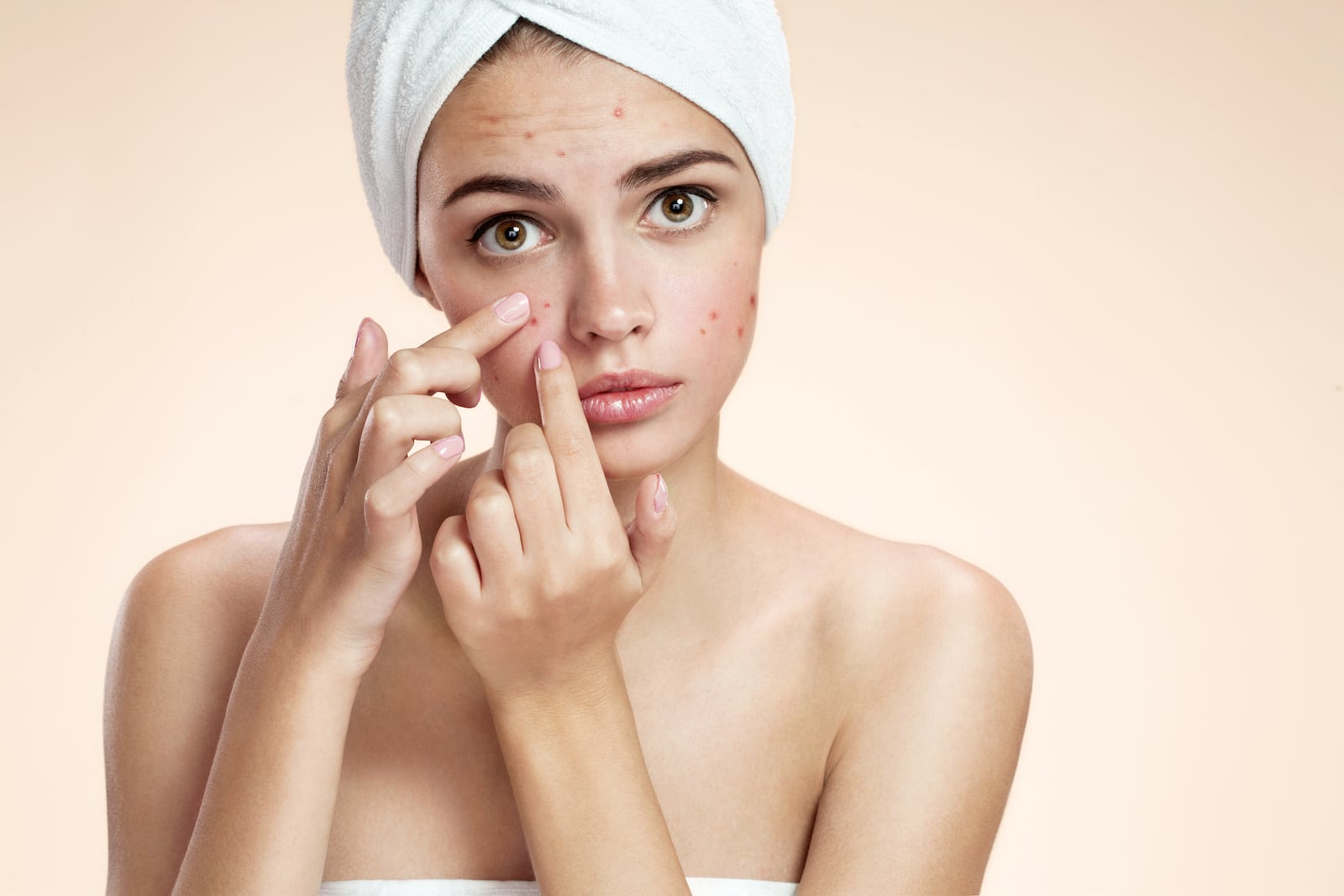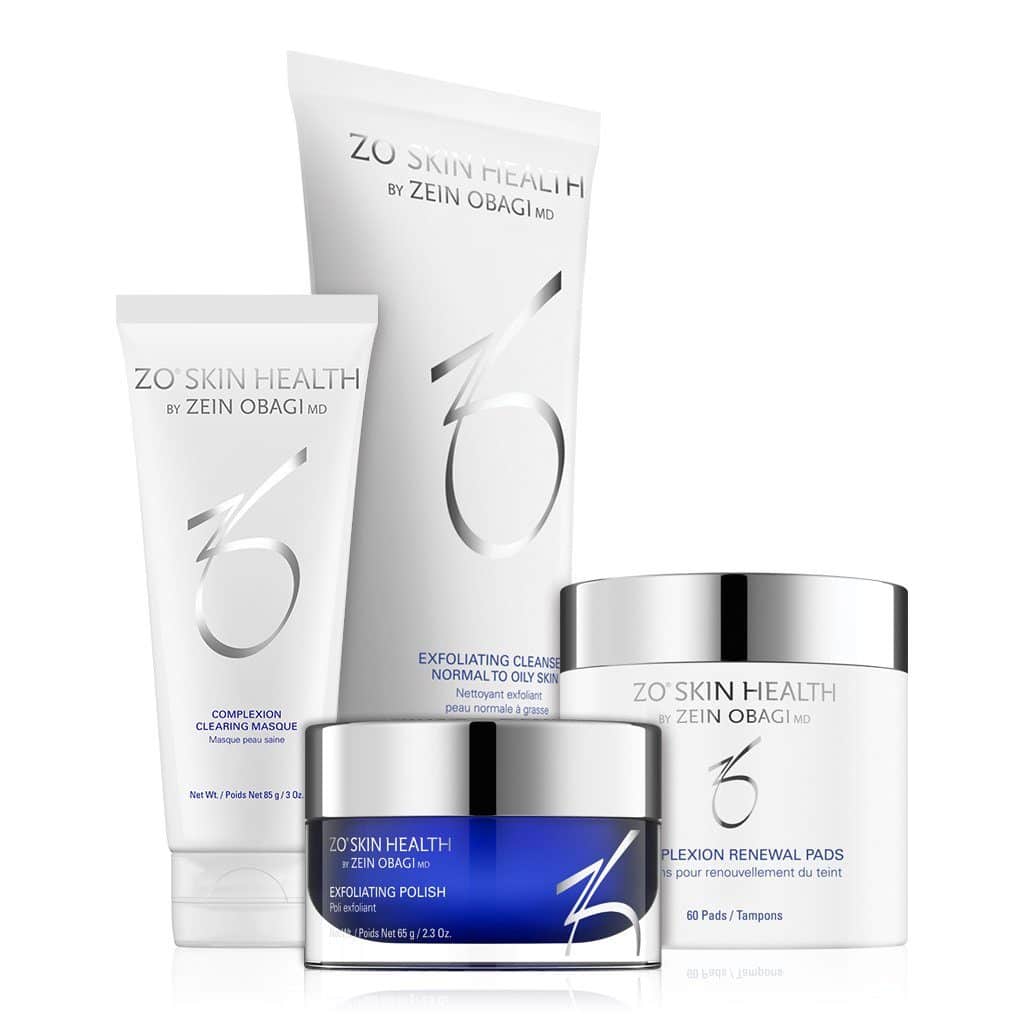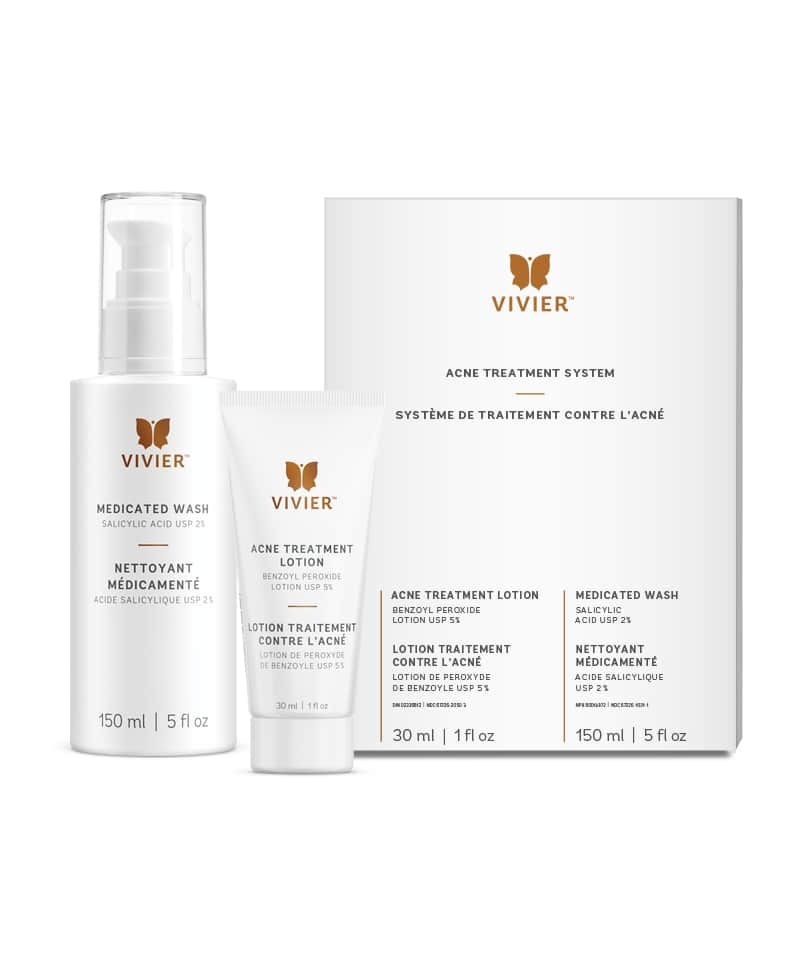For many teens and adults alike, acne is a problem we’re reminded of every time we step in front of a mirror. Treat one area of acne and it seems to find a new spot to pop up, making it both annoying to see and difficult to deal with.
In our Spring blog, we take a detailed look at the causes and solutions to stubborn acne!
What Even Causes Acne Anyway?
The causes of acne are difficult to pin down. Truthfully, the factors that contribute to acne are different for everyone, but there are usual suspects that we can point to as common causes.
Stress
Stress is a major factor in acne for teens and adults alike. Specifically, chronic stress and the hormone cortisol seem to be strongly linked to acne issues.
When you are stressed, your adrenal glands (and potentially hair follicles) release cortisol. Cortisol is actually one of the most important hormones in your body. It regulates your mood, immune system, digestive systems, and more. However, when the system is chronically flooded with cortisol, it can lead to problems like bacteria-driven inflammatory acne.
Cleaning Your Face Too Little (Or Too Much)
If you have been slacking on washing your face, then you may have a problem with clogged pores. As our skin produces oil, our pores can get clogged with oil and dirt. This can lead to more acne, so it’s best to start a cleansing regimen.
Paradoxically, trying too hard to cleanse your skin could also worsen your acne. For most people, cleansing twice a day is enough to keep pores clear and skin clean. Overusing facial cleansers or other products can dry out your skin and cause your body to produce more oil to compensate, leading to more acne.
Genetics
While a great deal of acne is caused by stress, the environment, or our behaviors, some people have a genetic predisposition for acne. If your family members have acne, you may, unfortunately, have a higher risk of acne as well.
Of course, our genetics are only part of the story, so don’t give up if your genes seem to be working against you.
Diet
While the research on diet and acne is inconclusive, there seems to at least be some soft correlation between certain foods and skin health. For instance, some people notice more breakouts when they eat too much dairy. A common belief is that greasy foods lead to acne, but that simply is not the case for everyone.
If you think food may be the cause of your acne, consider talking to your doctor about your diet and skin, along with any changes you could make to improve your skin health and overall health.
Underlying Medical Conditions/Side Effects
Acne can also be caused by pre-existing medical conditions like polycystic ovary syndrome (PCOS). Unfortunately, some medical conditions come with the side effect of acne which can only be managed.
Certain medications will also result in hormonal imbalances and acne. Specifically, androgens, lithium, and corticosteroids commonly cause acne as a side effect. If you feel like your medical condition or medications may be playing a role in your acne, be sure to speak with a dermatologist to find a solution that fits you.
Hormonal Fluctuations
Hormonal fluctuations are one of the biggest reasons for acne, as we’ve discussed above with cortisol. Hormones like progesterone and testosterone play a role in acne, which is an especially common cause among pre-teens and teens but can cause adult acne as well.
Teen Acne Vs. Adult Acne
In our teenage years, almost all of us have to deal with acne at some point. For teens, the most common culprit is hormonal changes and fluctuations during puberty. Androgens like testosterone and progesterone increase the size of skin glands that produce oil, leading to very oily skin.
In addition, stress and self-esteem issues in our younger years could exacerbate the issue. Paradoxically, worrying about acne could be fueling even more acne in pre-teens and teens.
The same factors teens face could play a role for adults as well. However, since hormones tend to stabilize after puberty, adult acne could be a more complex combination of factors like medication, menstruation, stress, diet, and more.
The Basics of Acne Treatment
So now that we have the basics of acne and its various causes, what are the best ways to address all of these issues?
Exfoliation
Exfoliation is one of the top ways to clear up and prevent acne. Exfoliation works by removing dead or dying skin cells that tend to linger on our faces. Exfoliators can use physical or chemical processes to remove this skin, but the end result is still clear skin.
However, exfoliation shouldn’t be used too frequently. Overuse can result in dry, flaky skin that makes your oil-producing glands overcompensate in reaction.
Inflammation-Reducing Products
If your acne is caused by inflammation, then inflammation-reducing products could give you some relief. Ingredients like aloe and oatmeal could potentially work wonders, along with regular cleansing and other acne-fighting products.
Topical Acne Treatments
Topical acne products have continued to improve year after year by making use of proven ingredients to clear up skin. Products containing proven ingredients like salicylic acid, lactic acid, and retinoids could be an effective way to go if you want skin-free of acne.
If you’re just now hearing of these ingredients, check out one of our previous blogs here where we break it down in much more detail.
Check out our VIVE SHOP online for our full menu of products to manage acne and keep skin clear and bright.
Let Vive Med Spa Help Rid You Of Acne For Good!
At Vive Med Spa, we have experts on staff with decades of experience with both teen and adult acne. With a suite of proven techniques and products at our disposal, we’re confident in our ability to clear up your skin once and for all.
Visit our website or give us a call to learn more about our acne treatment services!


